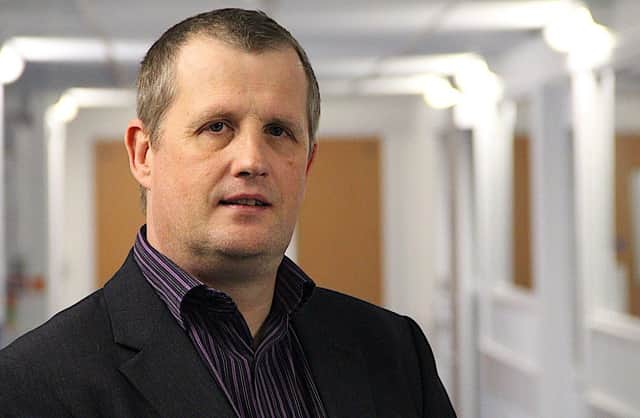NHS Borders chief says the knock-on effect of Covid is "as challenging now as at any point in the pandemic"


His plea comes in a week in which the Borders General Hospital reached capacity, leading to longer waiting times at the facility’s A&E department.
Speaking to the Southern today, Ralph Roberts asked Borderers to remain patient with the local health teams as they attempt to manage a packed hospital with depleted staff numbers.
Advertisement
Hide AdAdvertisement
Hide AdHe said: “It’s right that society tries to get back to normal, but it’s important that we are transparent with people, and we can’t just return to normal like flicking a switch.
"From a health point of view it feels far from normal and it’s as challenging now as it has been at any point in the pandemic and it will take us a long time to get back to normal.
"While most people who are catching Covid now are not getting terribly unwell with it, more people are catching it now than ever, and that means it impacts on our staffing levels.”
Mr Roberts said while people should ring 999 in emergency situations, they should think about their options if they are unsure about whether they need to attend A&E.
Advertisement
Hide AdAdvertisement
Hide Ad"We are at the moment having people waiting in our emergency department for 12 to 24 hours before we can find them a bed in the relevant ward.
"That’s clearly not the type of service we want to provide, but staff are working incredibly hard to ensure people are cared for appropriately in the emergency department and they can get into the hospital if they need to.”
Mr Roberts said that surge capacity plans are in place and assured Borderers that the board is doing everything it can to make beds available as soon as possible, but pleaded for their help in doing this.
He said: “Before you attend the Emergency Department please call NHS 24 on 111 first and they will signpost you to the right place to get the advice or care that you need.
Advertisement
Hide AdAdvertisement
Hide Ad"You may need to wait a while for your call to be answered or for a member of the team to call you back, but this can be done in the comfort of your own home.
"If you do need to be seen you may be given an appointment time to minimise the time you need to spend in the department. This also reduces pressure on our team.
“If you think that your condition is immediately life threatening you should call 999.
“If your family member is fit to be discharged from hospital, please help us to get them home quickly when they are well enough by being ready and available to collect them or support their discharge to their next place of care.
Advertisement
Hide AdAdvertisement
Hide Ad"Please understand that we cannot always offer the preferred next place of care in the location that you would choose, and we may ask you to compromise.
"Working with us to accept this means that we can get the flow through our hospitals moving, and offer care to the maximum amount of people who need it.”